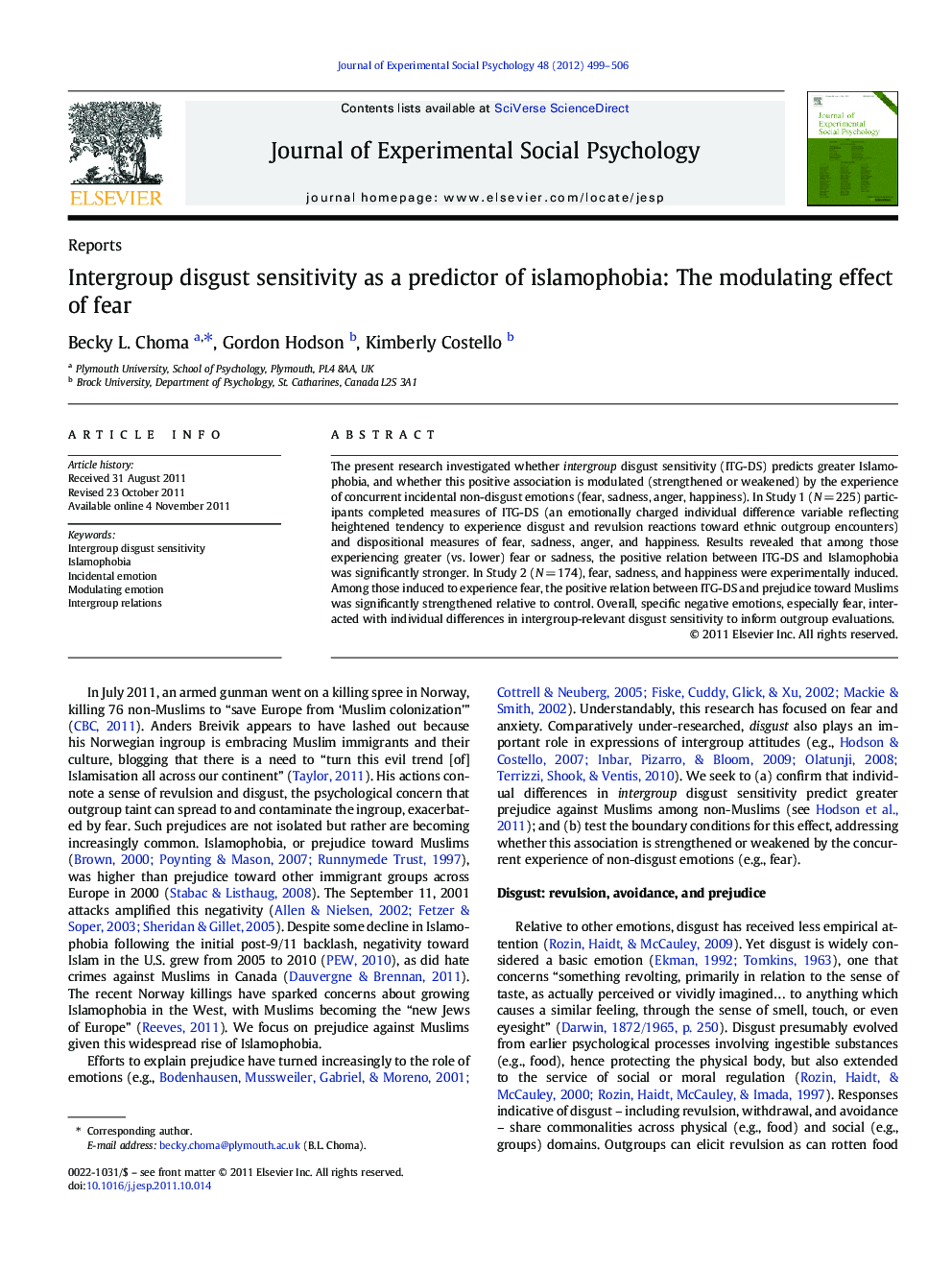| Article ID | Journal | Published Year | Pages | File Type |
|---|---|---|---|---|
| 948511 | Journal of Experimental Social Psychology | 2012 | 8 Pages |
The present research investigated whether intergroup disgust sensitivity (ITG-DS) predicts greater Islamophobia, and whether this positive association is modulated (strengthened or weakened) by the experience of concurrent incidental non-disgust emotions (fear, sadness, anger, happiness). In Study 1 (N = 225) participants completed measures of ITG-DS (an emotionally charged individual difference variable reflecting heightened tendency to experience disgust and revulsion reactions toward ethnic outgroup encounters) and dispositional measures of fear, sadness, anger, and happiness. Results revealed that among those experiencing greater (vs. lower) fear or sadness, the positive relation between ITG-DS and Islamophobia was significantly stronger. In Study 2 (N = 174), fear, sadness, and happiness were experimentally induced. Among those induced to experience fear, the positive relation between ITG-DS and prejudice toward Muslims was significantly strengthened relative to control. Overall, specific negative emotions, especially fear, interacted with individual differences in intergroup-relevant disgust sensitivity to inform outgroup evaluations.
► We test intergroup disgust sensitivity (ITG-DS) as a predictor of Islamophobia. ► We test incidental non-disgust emotions as modulators of this relation. ► Dispositional fear and sadness strengthened the ITG-DS-Islamophobia relation. ► Experimentally induced fear strengthened the ITG-DS Islamophobia relation. ► Incidental non-disgust emotions (fear) interact with ITG-DS to predict prejudice.
